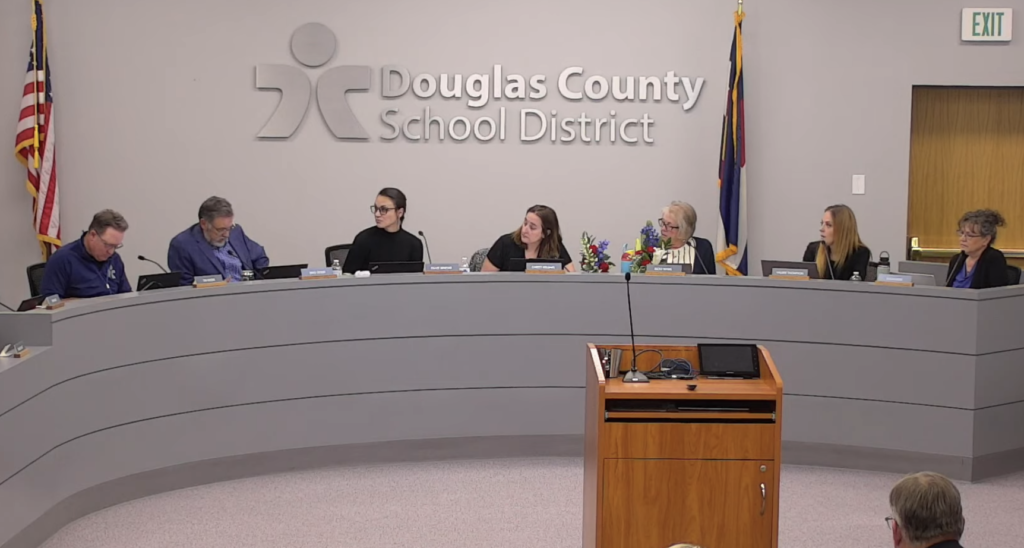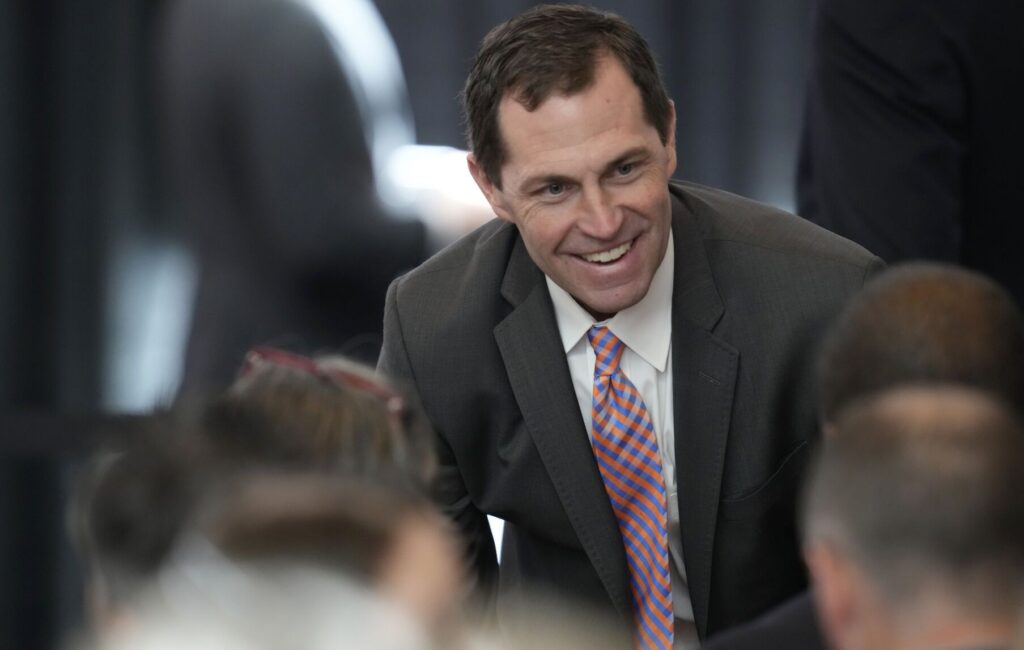Colo. treasurer candidate says he’ll keep his current job if elected

The Republican candidate for Colorado state treasurer promises not to accept a paycheck from the state if he’s elected. Rather, Brian Watson’s paychecks would continue to roll in from the commercial real estate investment company he heads because he plans to continue working there.
Watson said in June – during an interview with Jon Caldara, president of the Denver right-leaning think tank the Independence Institute, on Colorado Public Television 12 – that his company manages $1 billion in assets, owns buildings in 16 states and employs around 50 people. He founded his real estate investment company, Northstar Commercial Partners, in 2000 and currently serves as the company’s chairman and chief executive officer.
If he’s elected, Watson told Caldara he’ll continue as chairman of the company, though he does want to be a “proactive” state treasurer.
When Caldara asked why Watson wouldn’t place his assets into a blind trust and let someone else run his business, the candidate replied: “Partly, just like I’m going to have a fiduciary responsibility to the people of Colorado with their money at the state treasurer’s office, so I am in a fiduciary responsibility with my current investors.”
The exchange was little noticed at the time, but the Colorado Democratic Party spotlighted Watson’s June comments Tuesday in a press release.
When asked about the matter, Watson told Colorado Politics that his company does not conduct business for the state, nor would it take any incentives from the state.
“We do not want to incur any conflicts of interest, or any benefits in my role as public servant other than serving the people of Colorado and trying to make a positive difference,” he said.
Kyle Forti, a spokesman for Watson’s campaign, said Watson would be “quite a bit more hands off than now” at his company if he is elected.
Indeed, Watson told Caldara that he’ll give the treasurer seat its full-time due and will “donate” a few hours a week or a month to his company to “make sure that people are executing and moving forward.”
“The people that know me know I work really, really hard,” Watson told Caldara.
Despite those assurances, a failure to step down or place his assets in a blind trust would almost certainly qualify as a conflict of interest, said Jane Feldman, the former executive director of the Colorado Independent Ethics Commission and now an ethical consultant in Denver.
“To me it presents a clear conflict of interest because one of the things that the treasurer does is decide how to invest the state’s funds,” Feldman said, citing the state’s statute dictating proper conduct for elected officials. The statute says conflicts can occur between the public duty of an official and his or her private interest.
“If he is going to be investing the state’s funds while still also advising private clients, to me that’s a clear conflict of interest,” Feldman said.
The state’s investments could directly or indirectly benefit Watson’s company or his clients, she said.
Elected officials or state employees with concerns could file a complaint with the Colorado Independent Ethics Commission, which could then make a ruling on the topic, Feldman said. Or they could reach out to the attorney general’s office for guidance.
A similar issue arose around 2011 with then-Secretary of State Scott Gessler, Feldman noted.
At the time, Gessler wanted to work as an elected official, but also to hold his job as an attorney.
Gessler ultimately stepped down from his position in the law firm, Feldman said. The public’s distaste for his split time was a significant factor in the decision.
“But I think most people think he got an opinion from the state attorney general’s office,” Feldman said.
Representatives of the attorney general’s office did not respond to messages seeking comment on the topic.
Dino Ioannides, executive director of the Colorado Independent Ethics Commission, declined to comment.
Feldman acknowledged that she supports and wrote a small check to Watson’s opponent, Democratic candidate Dave Young.
“My whole business model is going out and buying vacant, distressed commercial real estate assets to create jobs and opportunities and to empower Americans,” Watson told Caldara, explaining how there would be no conflict with his public and private positions. “What we’re looking for is how can we take a vacant building and turn it into a charter school or a business incubator or a productive work environment.”
Young takes issue with a part of that business model, however.
“Charter schools are funded by taxpayer dollars in Colorado,” Young said. “To remain as chairman of a company that profits off taxpayers is a huge conflict of interest for a state treasurer.”
If he is elected over Watson, Young, a state representative from Greeley, pledged to be “completely transparent” with his finances.
Potential conflicts aside, Feldman also noted that the treasurer seat is a full time position. She questioned how Watson could juggle both responsibilities.
Watson said he will work full time as treasurer, if he is elected.
“In addition, I will continue to make my living in the private sector, like most Coloradans,” he said. “I have a full time staff and COO who will oversee all daily operations while I remain involved as chairman.”
Ernest Luning of Colorado Politics contributed.
Correction: This story has been updated to include a word that was inadvertently omitted from a quote of Watson’s














